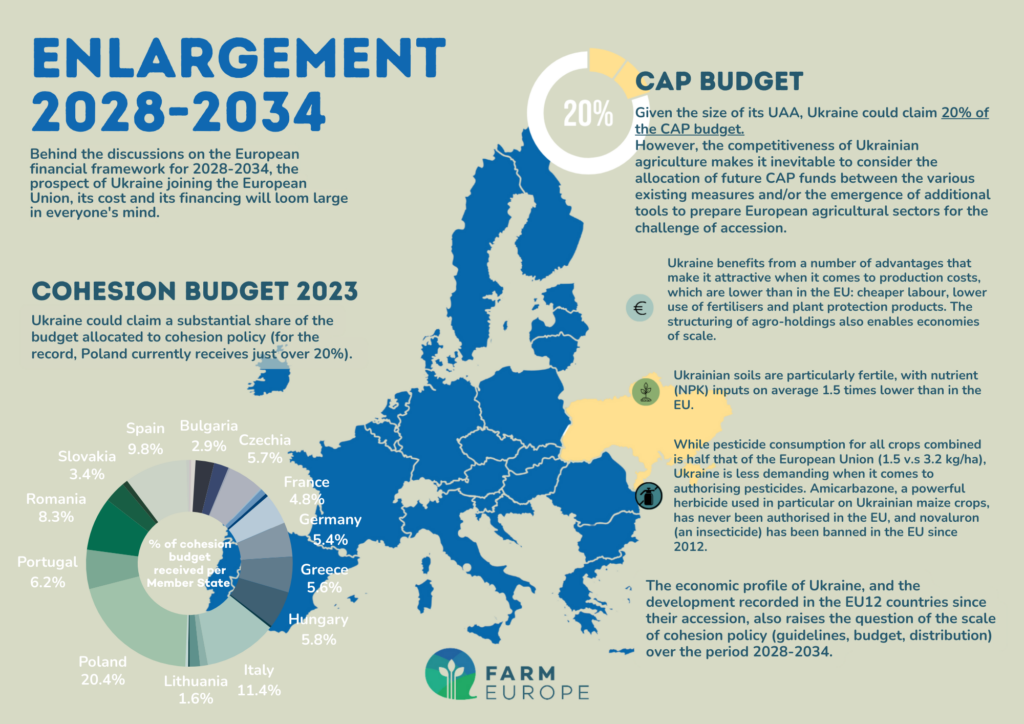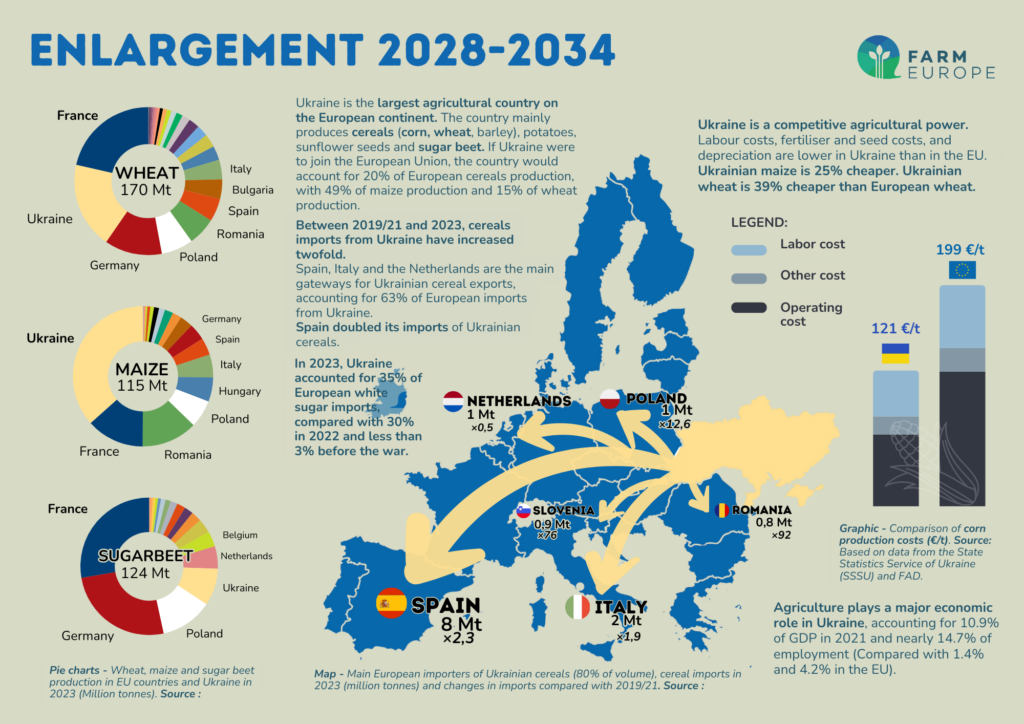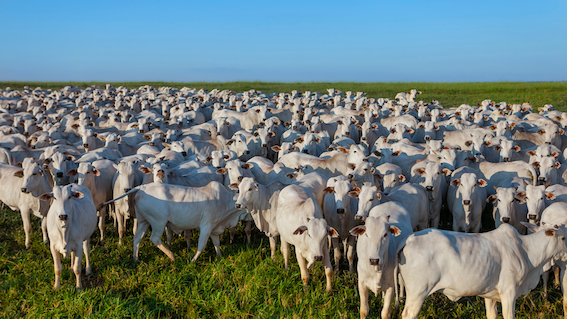Brussels, 21st October 2025 – As every year, the European Commission presented earlier this week its work programme for the year 2026. The programme, named “Europe’s independent moment”, highlights the flagship policy and legislative initiatives that will be proposed in the year ahead.
On agriculture, the Commission announced two main new initiatives for the upcoming months.
First, the publication of an EU livestock strategy is expected by the second quarter of 2026. Indeed, the livestock workstream’s meetings are still running, led by DG AGRI, with the next one planned for 23rd October to discuss competitiveness and sustainability. Farm Europe emphasises the need for an ambitious strategy able to rely on a comprehensive toolbox for consolidating achievements, economic support and targeted investment. The EU needs a strong livestock sector to bring back production in Europe, to fully optimise the positive benefits of livestock farming and to invest and prepare for the future.
Secondly, an update of rules on unfair trading practices in the food chain is foreseen for the third quarter of 2026 with the objective of ensuring that European farmers and small producers are better protected. Yet, we are still waiting for the evaluation of the directive, which is expected by November of this year.
At the same time, there are various pending proposals relating to the agri-food sector, going through different stages of the legislative process. The Animal welfare during transport proposal is still awaiting its committee vote, while the Wine package is scheduled for a committee vote on 5th November. Progress is also being made on files under interinstitutional negotiation: the CAP Simplification Package went through its first trilogue recently, with adoption expected by the end of the year to ease administrative burdens for farmers; the UTP proposal has also completed its first trilogue; and both the CMO (Position of Farmers) and NGT (New Genomic Techniques) proposals have further trilogue meetings foreseen in mid-November. In parallel, a set of longer-term proposals (MFF & Performance Framework, CAP, NRP and the CMO Reform) were all published in July, marking the early stage of their legislative journey.
When it comes to the development of a European bioeconomy that puts farmers at the centre, a new Circular Economy Act is expected for the third quarter of 2026, complementing the Bioeconomy Strategy that will be published in November of this year. This legislative file presents a significant opportunity both for the agricultural sector, especially through the promotion of a sustainable use of resources, including water, waste reduction, and the recycling of organic by-products. The Act according to the Commission
aims at boosting agriculture’s transition toward a more sustainable, resource-efficient model that safeguards both food security and natural resources, while also supporting the deployment of the EU Water Resilience Strategy.
Secondly, the European executive has decided to divide the upcoming EU Biotech Act into two stages. The first part, to be published by the end of 2025, will concentrate mainly on health-related biotechnology, including measures to simplify rules on clinical trials and aspects relevant to the food and feed sectors. It will form part of a broader health package alongside the revision of medical device regulations. The second part, expected in the third quarter of 2026, will cover the wider biotech ecosystem. This two-step approach reflects the Commission’s view that different biotech sectors require tailored solutions, following extensive stakeholder consultations.
The European Commission’s 2026 work programme paves the way for an Energy Union package for the decade ahead in Q3 2026, as well as an Omnibus to simplify energy product legislation. The programme also signals a forthcoming revision of the renewable energy framework for the same period, which may reflect a shift toward the broader concept of ‘clean energy’, potentially paving the way for the principle of technological neutrality, which would allow farmers to play an active role in the decarbonisation of other economic sectors, namely transport, through the production of biomass used, for instance, to produce bioenergy and biofuels.
- Concerning the Union’s action in reducing GHG emissions and fighting climate change, the Commission plans on publishing its Climate Package in Q3-4 2026. The text will revise the frameworks for effort-sharing on greenhouse gas emissions not covered by the EU Emissions Trading System (ETS), as well as for LULUCF and forestry. These updates are particularly relevant for the agricultural sector, which plays a central role in both carbon sequestration and emissions reduction, ensuring that farming contributes equitably to Europe’s climate goals while providing a new source of income for farmers.
Complementing these measures, the European integrated framework for climate resilience, with legislative and non-legislative components scheduled for Q4 2026, has the ambition of enhancing Europe’s resilience to climate-related impacts. By supporting adaptive strategies in agriculture, water management, and rural infrastructure, the plan can be an opportunity to further safeguard food production and water resources against climate risks, as well as to scale up carbon farming practices.
Looking ahead, the negotiations will continue on pending proposals such as the amendment to the EU Climate Law, which would set a 90% emissions reduction target for 2040, and the Green Claims Directive. The first legislative initiative should acknowledge the agricultural sector’s full potential to contribute to the decarbonisation of other industries, while restricting the use of international carbon credits, since they are difficult to verify, open the door to fraud, and could undermine domestic decarbonization incentives by not reflecting the true costs of EU-based climate efforts. The second proposal would be an opportunity to give the right value to farmers’ transition towards more sustainable practices.
For questions and reactions please do not hesitate to contact us at info@farm-europe.eu.







